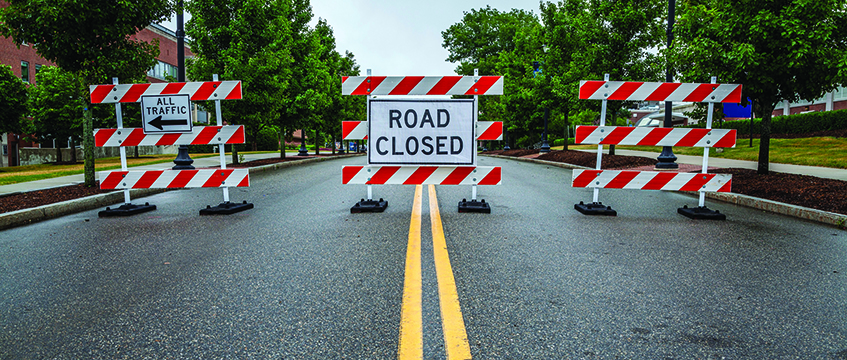Is it the end of the road for residential leasehold?
Legal
by
James Souter and Lauren Fraser
With the form of tenure under attack from various quarters, can it survive?
While it seems that most of parliament is preoccupied with Brexit, we find ourselves increasingly concerned by the growing attack on residential leasehold from various quarters.
However, with estimates in the Law Commission’s consultation paper on leasehold reform suggesting there are anything between 4m and 6m residential leaseholders in England and Wales, it is easy to see why there is cross-party consensus on reforming leaseholds.
With the form of tenure under attack from various quarters, can it survive?
While it seems that most of parliament is preoccupied with Brexit, we find ourselves increasingly concerned by the growing attack on residential leasehold from various quarters.
However, with estimates in the Law Commission’s consultation paper on leasehold reform suggesting there are anything between 4m and 6m residential leaseholders in England and Wales, it is easy to see why there is cross-party consensus on reforming leaseholds.
The “problem”
It is widely acknowledged that there have been recent cases of abuse in the residential leasehold sector.
The government is consulting on the terms of legislation in relation to doubling ground rents, as well as banning the sale of new leasehold houses. Although the latter will need to be considered very carefully, as there are certain circumstances in which leasehold houses can’t be avoided, in principle they are both sensible suggestions.
Despite these legitimate grievances, we cannot lose sight of the fact that the current residential leasehold system works in the majority of cases.
The abolition of the whole system as a result of a misguided, emotional reaction seems entirely disproportionate, and particularly when there is no evidence that the alternatives are more attractive.
The “solution”?
There is a growing body of support for commonhold to provide the solution to the perceived issues with leasehold.
Commonhold was introduced in 2004 but has yet to be adopted in more than a handful of cases.
The Law Commission, in addition to its recent consultation on leasehold reform, is currently consulting on commonhold to determine what, if any, changes can be made to encourage wider take-up.
Supporters of commonhold anticipate that the structure will inspire property owners to join together and manage their building in a constructive and positive manner. While this is a laudable aim, in our experience some of the worst problems in practice relate to buildings where the freehold is held by a company in which all the leaseholders are shareholders.
In these circumstances, as is the case with commonhold, the leaseholders are “the masters of their own destiny”. This doesn’t prevent disputes between neighbours about issues such as the timing and extent of major works.
These structures can lead to a complex and intertwined network of disputes, with serious conflicts of interest given that the same people are both landlord and leaseholders, as well as directors and shareholders.
Such conflict doesn’t arise where the freehold is owned by a third-party landlord, who – in the majority of cases – will behave responsibly in managing the building, which is, of course, an asset in which they have a significant interest.
Management of leaseholder-owned buildings depends on either leadership from owners with expertise in property and financial management or the appointment of managing agents, the costs of which can often prove contentious. These are not issues that will be resolved by the adoption of commonhold.
What reforms are needed?
The reality is that residential leaseholders enjoy more statutory protection than ever, due to an ever-growing body of legislation protecting their rights.
One of the main areas of tension is inevitably around payments to be made by leaseholders to their landlords. It is commonly claimed that leaseholders are still at a disadvantage in this relationship.
However, leaseholders are entitled to challenge when they think costs are unreasonable and to be consulted before major works are carried out, or before a long-term agreement is entered into.
It is also important to remember that the majority of such payments relate to the upkeep of the building containing the leaseholders’ flats. It is essential that landlords have a quick and cost-effective means of securing payment from all leaseholders to avoid the risk or non-payment.
This in turn benefits leaseholders, who have a vested interest in ensuring that the building does not fall into disrepair.
If leaseholders don’t pay towards building upkeep, forfeiture is one of the only enforcement options available to landlords. It is a draconian and disproportionate response to breaches of the lease.
Due to the serious consequences, landlords are required to jump through a number of procedural hoops to secure forfeiture.
Unfortunately, this means that leaseholders are faced with significant legal bills when, as is usually the case, forfeiture is eventually avoided on terms that include payment of the landlord’s costs. This area is ripe for an overhaul, which should include an alternative, efficient means for recovering arrears.
However, the Law Commission’s now historic proposals to reform the law of forfeiture have been languishing on the shelf for almost 15 years.
Reserve funds are another issue where a simple solution could have a widespread positive impact. Many leases do not provide for reserve funds, which means that landlords are prevented from building up a reserve to deal with major works. This can put financial pressure on leaseholders, who are asked to stump up significant sums at short notice, and could easily be addressed by statutory intervention.
Change for the better?
Despite the recent spotlight on commonhold, and the suggestion that leaseholds could be abolished altogether, there is no evidence that this would solve the “problems” with residential leasehold.
Even if this were the case, the time, costs and uncertainty associated with adopting a new system cannot be ignored. There must be careful consideration as to how a widespread transition between systems would be delivered and how it would impact on the existing property market as well as the delivery of new properties.
In our view, parliamentary time would be better spent fine-tuning the current system, where the required improvements are within easy reach.
James Souter is a partner and Lauren Fraser is a senior associate at Charles Russell Speechlys
© Design Pics Inc/Rex/Shutterstock











